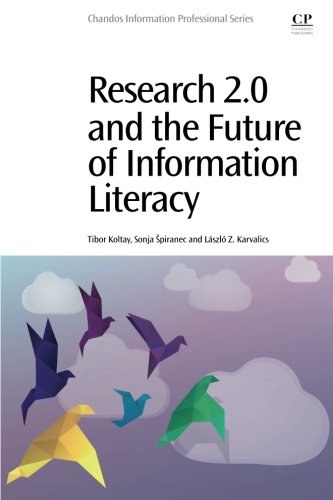

Most ebook files are in PDF format, so you can easily read them using various software such as Foxit Reader or directly on the Google Chrome browser.
Some ebook files are released by publishers in other formats such as .awz, .mobi, .epub, .fb2, etc. You may need to install specific software to read these formats on mobile/PC, such as Calibre.
Please read the tutorial at this link: https://ebookbell.com/faq
We offer FREE conversion to the popular formats you request; however, this may take some time. Therefore, right after payment, please email us, and we will try to provide the service as quickly as possible.
For some exceptional file formats or broken links (if any), please refrain from opening any disputes. Instead, email us first, and we will try to assist within a maximum of 6 hours.
EbookBell Team

0.0
0 reviewsResearch 2.0 and the Future of Information Literacy examines possible congruencies between information literacy and Research 2.0, because the work of today’s researcher mobilizes a number of literacies. From among the various types of relevant literacies, at least three types of literacies can be mentioned in this relation: information literacy, scientific literacy and academic literacy. This book addresses these literacies in the light of the changing research landscape. Broad contexts of the researcher’s abilities, as adaptive and innovative thinking, problem solving skills, self-management and design mindset are also examined. Computational thinking and the computational paradigm in a number of fields of research are taken into consideration, as well. Researchers differ to non-researchers when populating social media, which means that these two different groups require different literacies. The relationship between information literacy and information is approached in a new way. Among the multitude of issues, we introduce a new interface between information literacy and Research 2.0. It encompasses the issues of research data management and data literacy, which represent also a challenge both for the academic library and for the communities of researchers. Similarly, the questions of new metrics of scientific output are addressed in the book.